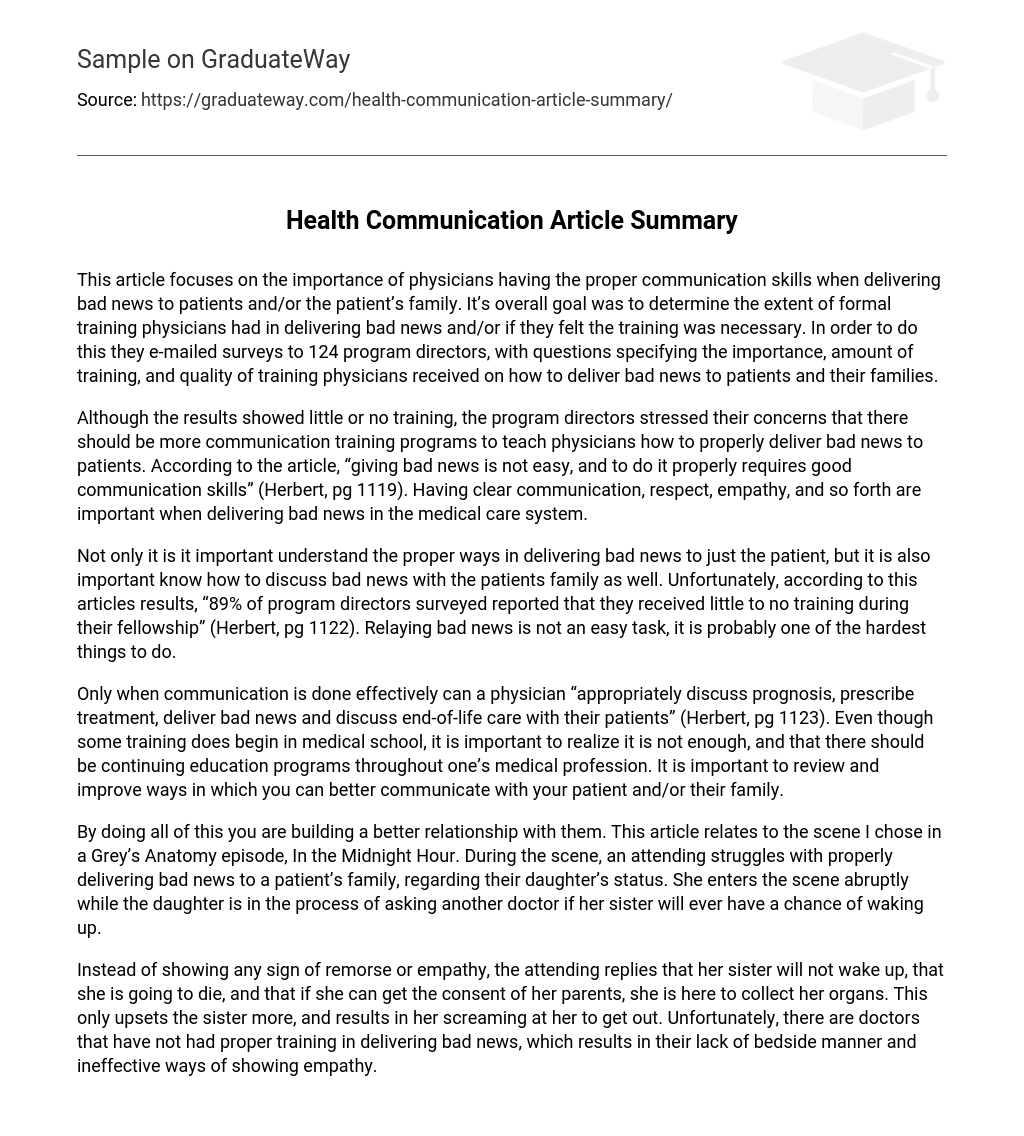This article discusses the significance of effective communication skills for physicians when conveying negative information to patients and their families. Its main objective was to assess the level of formal training that physicians receive in delivering bad news, as well as evaluate their perception of the necessity of such training. To achieve this, the researchers distributed surveys via email to 124 program directors, containing inquiries about the importance, quantity, and quality of training that physicians received in imparting bad news to patients and their families.
Despite the minimal or nonexistent training reflected in the results, the program directors emphasized the need for additional communication training programs. These programs aim to educate physicians on effectively conveying negative information to patients. As stated in the article by Herbert (pg 1119), delivering bad news is a challenging task that necessitates strong communication abilities. Within the medical care system, it is crucial to possess clear communication, respect, empathy, and other essential skills when addressing patients with unpleasant news.
Understanding the proper ways to deliver bad news to patients and their families is crucial. However, the majority of program directors surveyed (89%) admitted to receiving insufficient training in this area during their fellowship. Relaying bad news is an extremely challenging task.
In Herbert’s book (pg 1123), it is emphasized that effective communication skills are crucial for physicians. They are necessary for discussing prognosis, prescribing treatment, delivering bad news, and discussing end-of-life care with patients. While some training occurs in medical school, it is insufficient. Continuous education programs should be implemented throughout a physician’s career to further develop these skills. Evaluating and improving communication abilities is essential for enhancing interactions with patients and their families.
Participating in these actions strengthens your bond with them. This article specifically examines a scene from an episode of Grey’s Anatomy called “In the Midnight Hour”. The scene features a senior doctor facing challenges in communicating distressing news to a patient’s family about their daughter’s health. The senior doctor enters abruptly while the daughter is discussing the possibility of her sister waking up with another doctor.
When confronted with the situation, the attending does not express remorse or empathy. Instead, they inform the sister that her sibling will not regain consciousness and will eventually pass away. Furthermore, they mention their intention to collect the sister’s organs if parental consent is granted. This distresses the sister even further, causing her to scream at the attending and demand their departure. Sadly, there are doctors without adequate training in conveying unfortunate news, which leads to their deficiency in displaying compassion and ineffective approaches towards empathy.





